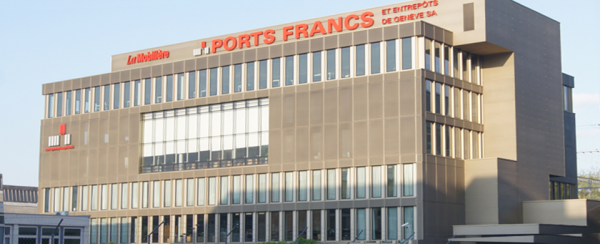Market
Switzerland’s Tough New Stance on Freeports Will Shake the Art World
Are we about to see freeports flourishing elsewhere?
Are we about to see freeports flourishing elsewhere?

Geneva Freeports
Photo via: Geneva-freeports.ch
The Swiss parliament approved stricter regulations for freeports and customs warehouses yesterday, according to a government announcement.
The regulations are part of a wider crackdown on money laundering, smuggling, and other illegal activities that Switzerland has launched.
The amendment to the Swiss Customs Act, which comes into effect on January 1, 2016, also grants the Federal Customs Administration (EZV) new power to monitor and control the entry and exit of goods more efficiently and effectively.
Under the new regulations, the government introduced a six-month time limit on the storage of goods intended for export. The deadline can be extended by the EZV if proper grounds are determined.
To enhance transparency, exporters must explicitly declare if goods are intended to be exported to a freeport in Switzerland. In addition, the identity of the buyer of the goods that are to be exported to Swiss freeports must be declared—the export to a freeport is only permissible if the buyer has a registered office or home abroad.

Inside the Geneva Freeport
Photo: via Wallpaper
The Swiss legislature introduced these measures to ensure the clear distinction between goods intended for storage in freeports and ones intended for export abroad.
Furthermore, freeport managers will be required to register the goods and their owners in an inventory record.
Additionally, to combat money laundering, the definition of sensitive goods required to be classified in records as investment has been extended to include wine, cigars, automobiles, motorcycles, and furniture.
The Swiss government said, “With the introduction of the new amendment, the legislature wishes to ensure the required transparency towards domestic and foreign authorities on the stored goods. In addition, Switzerland’s position in the fight against money laundering has been strengthened.”
So what do the regulations mean for the art market? The art market was of course dragged into the freeport debate after fraud allegations were launched against former Luxembourg freeport executive and art dealer, Yves Bouvier, by his former client, Russian billionaire Dmitry Rybolovlev.

Yves Bouvier.
Photo: Daniel Stier/Bloomberg Markets.
The six-month storage cap imposed by the Swiss government will likely have the greatest impact on the art market. Equally significant is the requirement to reveal the identities of the owners of goods coming in to Swiss freeports and the identities of buyers of goods going out. The days of collectors hiding their prized artworks from tax authorities could be numbered.
Furthermore, the black market trade in illicit antiquities and stolen artworks will be significantly impacted by the requirement to reveal the contents of the crates going in and out of the duty-free warehouses.
According to the Swiss publication Cash, a 2013 report by the Swiss Federal Audit Office determined that the long-term storage of goods with great value was found to be indicative of illegal storage for the purpose of tax optimization or to circumvent trade regulations on cultural goods or weaponry.